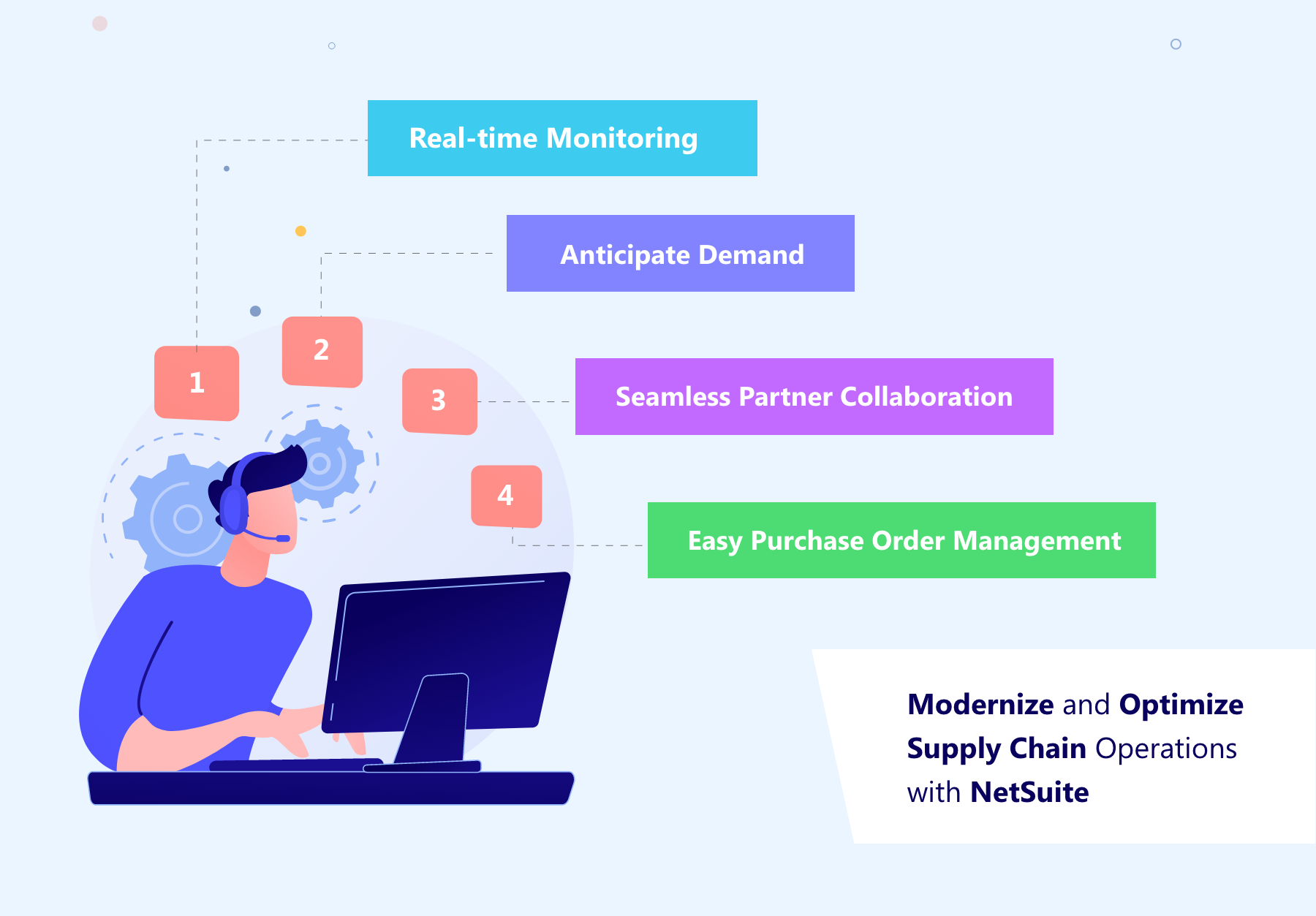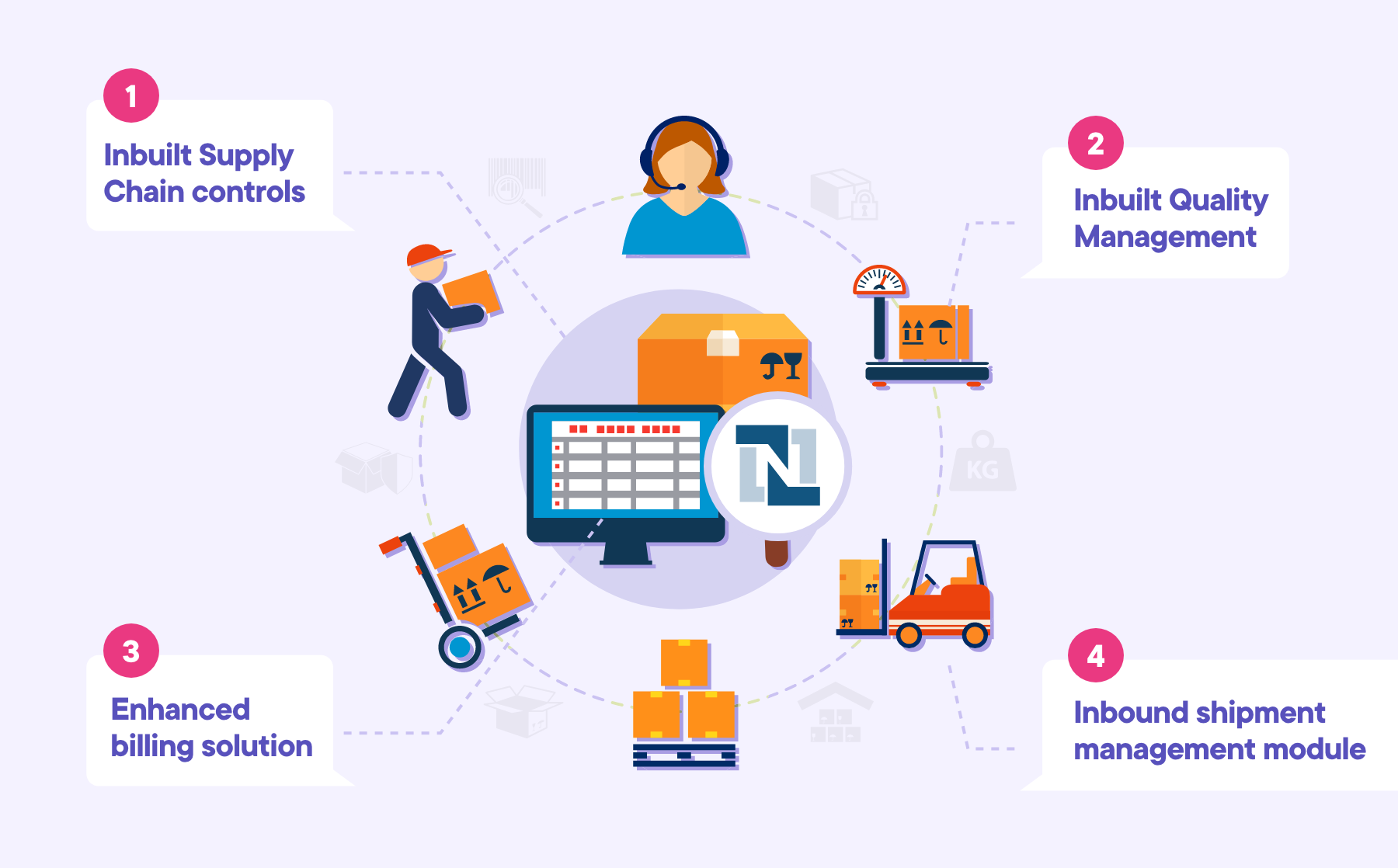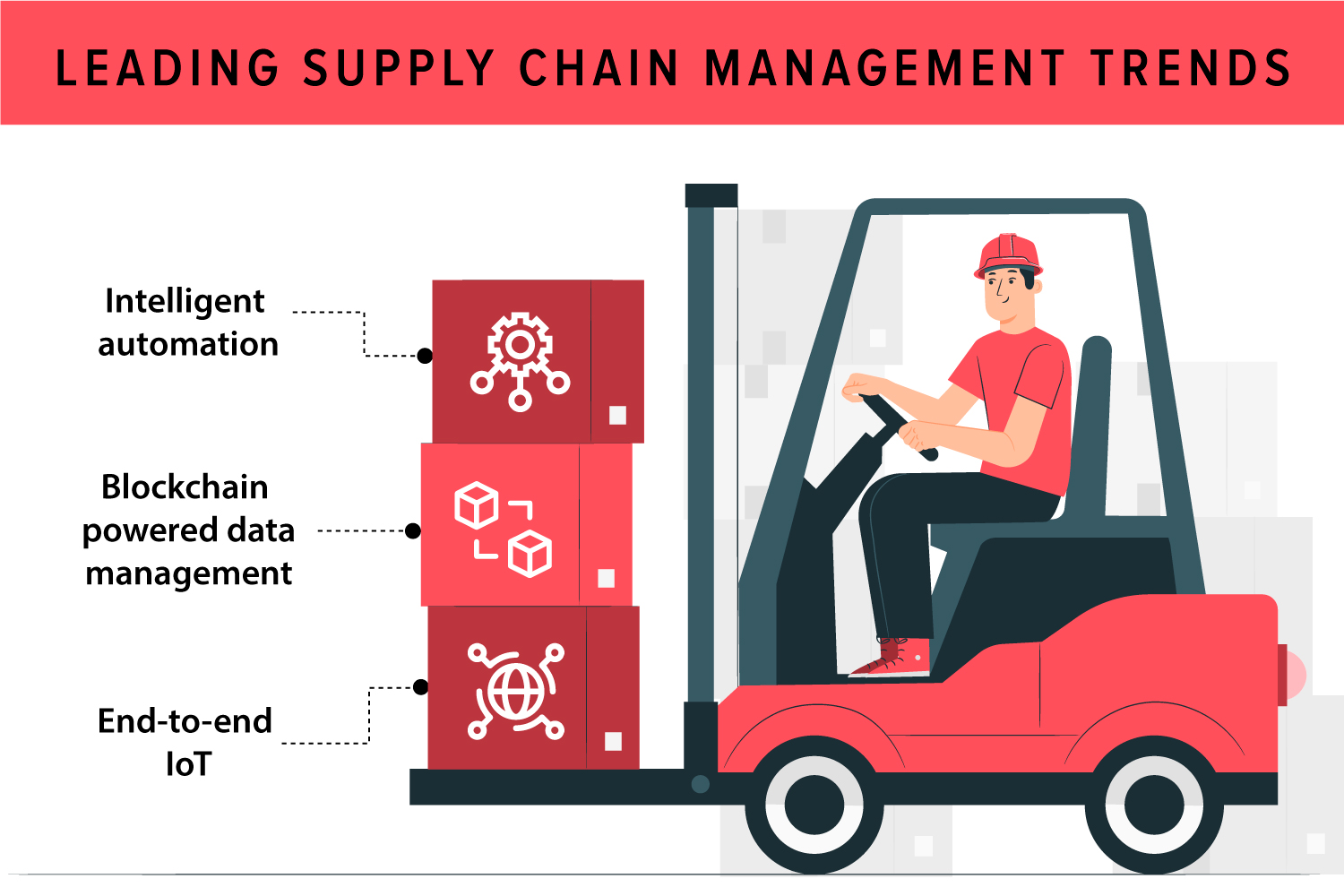From fulfilling customer expectations to dealing with the challenges of an unpredictable economy to maintaining delivery time or ensuring the highest quality control, supply chain management plays a crucial role in supporting a business in a wide number of ways. Irrespective of the industry you belong to, the complexity of the supply chain steadily increases as per the evolving market demand, the requirement of resources, and the labour availability and cost. This is where modern supply chain inventory management software suites can play an effective role by ensuring agile decision-making.
According to a recent survey by Gartner, a considerable number of business strategists said they have benefited from the visibility and agility of supply chain management suites to deal rapidly with activities corresponding to sourcing, manufacturing, and distribution in their business processes. The latest integrated supply chain management ERP software solutions like NetSuite in this respect prove to be highly effective.
There can be hardly any doubt about the fact that supply chains continue to become increasingly complex and the expectations are fast evolving. This complexity and evolving expectations are also pushing the drive for innovation ensuring more control for businesses. This is where the integrated cloud ERP supply chain management solutions are appearing to be more effective.
What Exactly is Supply Chain Management?
A supply chain refers to the entire business process that connects an enterprise with its suppliers. Typically the supply chain consists of all the transactions for materials, attributes about supply and demand, visibility of the order fulfilment process and all the data corresponding to all these different attributes. Supply chain management coordinates this entire process to ensure the proper delivery of materials, timely order fulfilment, optimum visibility of the order to the delivery process, data management and data analytics.
How Supply Chain Management Benefits A Business?

For any business there is a need to explain the advantages of supply chain management in 2024. By bringing together the entire supply chain activities and data within a single visible funnel, an integrated supply chain management system reduces errors to a minimum, does away with all the process errors while ensuring optimum visibility of the entire process involving sourcing, sales, procurement, logistics, production, and customer service.
Key Challenges for Supply Chain Management
Just because supply chain management is intrinsically complicated, often it becomes difficult to execute the supply chain tasks with equal consistency at all times. This is why the complexity of processes and data management remains the biggest challenge for businesses and supply chain management professionals. Remaining in darkness about the crucial background processes and information adds to the uncertainty level as well. Supply chain management for startups often suffers from these challenges.
Some of the key challenges faced by most enterprises regarding supply chain management include the following.
- Availability of Resources: Most business executives remain concerned about the shortage of key resources such as people, facilities, IT infrastructure and various other resources that are required to maintain growth.
- Talent Gap: Having onboard expert industrial engineers or experienced supply chain professionals remains a key challenge for any business
- Process Complexity: As new products and business markets continue to expand along with new suppliers, the increased complexity of keeping everything organised within a single visible funnel becomes challenging.
- Threats And Vulnerabilities: Industries facing different types of threats and vulnerabilities ranging from natural disasters to the market failure of essential suppliers to severe employee mismanagement can also add to the concerns of supply chain professionals.
- Compliance and Regulations: Since product standard regulations are changing along with norms of shipment, taxation and custom enforcement, adhering to compliance and regulations remains a key challenge.
- Changing Cost: The fluctuating market price of supplies causes tremendous pressure on several industries like manufacturing, healthcare, pharma, commodities and consumer durables and often resultss in slow movement in the supply chain.
- Market Volatility: Lastly, market volatility remains a common challenge for supply chains across all industries irrespective of niches and can cause significant complexities relating to the availability of supplies, shortages, supply delays, surpluses, spillage and unstable pricing.
NetSuite Integrated Supply Chain Management Solution
If you have read the above-mentioned challenges faced by businesses concerning supply chain management, you must have detected that real-time supply chain visibility is the core issue that can solve the majority of these challenges. This is exactly where the importance of ERP in supply chain management comes into the picture. NetSuite can be the best example of how a cloud-based integrated ERP software suite can solve all supply chain management issues.
Why is NetSuite Exceptional?

By putting into practice the real-world experience of business process management for innumerable leading global businesses, NetSuite has emerged as the most comprehensive Supply Chain module that ensures managing the supply chain in sync with the company’s inventory.
NetSuite is also the most evolved and powerful integrated ERP solution that continues to add new features and capabilities with its Supply Chain module. NetSuite supply chain management module offers optimum visibility of the entire supply chain process to ensure optimum business conversion and revenue generation.
Let us have a look at some of the most important updates that have been recently incorporated into the Supply Chain module of NetSuite for ensuring optimum results.
- NetSuite Warehouse Management System (WMS)
NetSuite has come up with a feature-rich Warehouse Management System (WMS), integrated into the Supply Chain module. Thanks to this newly integrated WMS, warehousing professionals can deliver real-time inventory updates, plan cycle counts, manage waves, manage cartoons and integrate warehouse information with shipping systems.
- Real-Time Inventory Status
Thanks to the NetSuite Supply Chain module, business managers can get real-time updates on inventory status. By having access to real-time inventory data the entire process starting from procurement to shipping can be optimised.
- Quality Management System (QMS)
The Supply Chain module also comes equipped with a Quality Management System or QMS to ensure optimum quality control procedures. The module will provide a designated control and execution area to facilitate the tracing and quality management of each item with optimum efficiency.

- Supply Chain Snapshot
Another new feature added to the NetSuite Supply Chain Module is the ability to take a snapshot of inventory, warehouse and deliverable shipments at a particular period. The snapshot being shared among the team members can keep everybody informed about product movement in the supply chain. The feature ensures optimum transparency and control for the supply chain managers.
- Streamlined Location Assignment
Originally conceived as part of the Order Management module, this feature is now integrated with the Supply Chain module. It will provide real-time guidance about fulfilling the order at least time based on inventory position.
- Cross-Subsidiary Order Fulfillment
Thanks to this new integrated feature in the NetSuite supply chain module the inventory location source of the order no longer matters. The feature will help fulfil all orders in quickly time irrespective of the order origins.
- Handling Order Changes
A new feature has been incorporated to handle order changes better and more efficiently. Thanks to this feature users are capable of making quick requests for the changes in their orders and sharing the same with the corresponding authorities, and making the changes valid in a streamlined and seamless manner.
Leading Supply Chain Management Trends

As of now, you must have understood how cloud-based integrated supply chain ERP systems like NetSuite automate the inventory and supply chain process and ensure optimum transparency, control, efficiency and customer satisfaction.
The way cloud-based ERP solutions like NetSuite transformed supply chain management can be considered as the beginning of a new tech trend. Several other tech-driven trends are continuing to transform supply chain management and overall business operations.
Let us have a quick look at some of these era-defining technology trends shaping the supply chain management of the future.
- Intelligent Automation: Artificial intelligence (AI) now has come as the most promising value addition to drive intelligent and intuitive automation in supply chain management. Based upon data-driven insights corresponding to past operations and several other factors AI is automating the supply processes to reduce human errors and fault lines emanating out of approximation.
- Blockchain-Powered Data Management: Another crucial technology that is making a huge impact in transforming access to data and data security is Blockchain technology. Supply chain management powered by Blockchain databases can completely help to do away with all data tampering efforts common with big business supply chains.
- End-to-End IoT: The Internet of Things (IoT) representing a connected ecosystem of gadgets and sensors is a key technology that has been adopted by industries for more efficient supply chain management. Thanks to the use of IoT and connected sensors and technologies like QR codes, barcodes, etc, the supply chain process has become more transparent ensuring real-time visibility of data.
Conclusion
Supply chain management in 2024 is continuing to evolve at a rapid pace creating more transparency and control mechanisms for the industries and professionals. Starting with the cloud-based integrated ERP systems and their automation tools, the supply chain continues to break through new barriers of tech-driven innovations.












